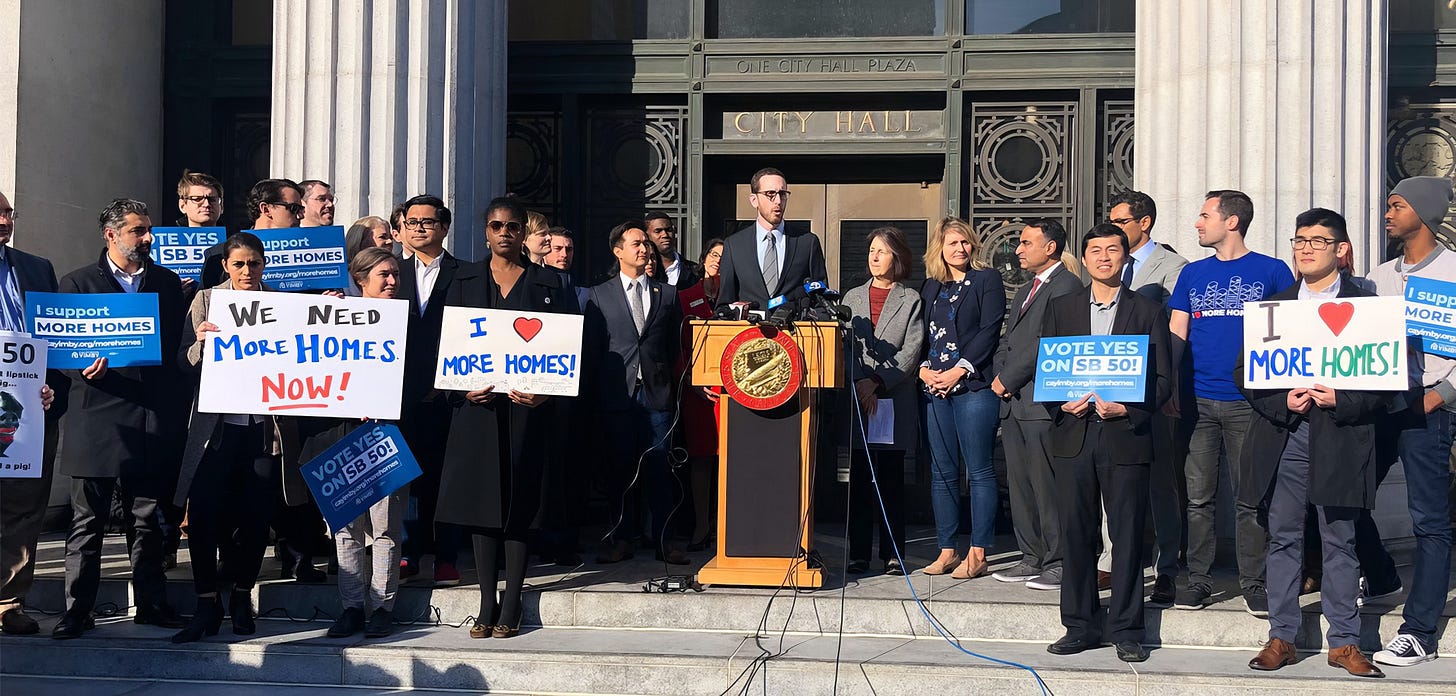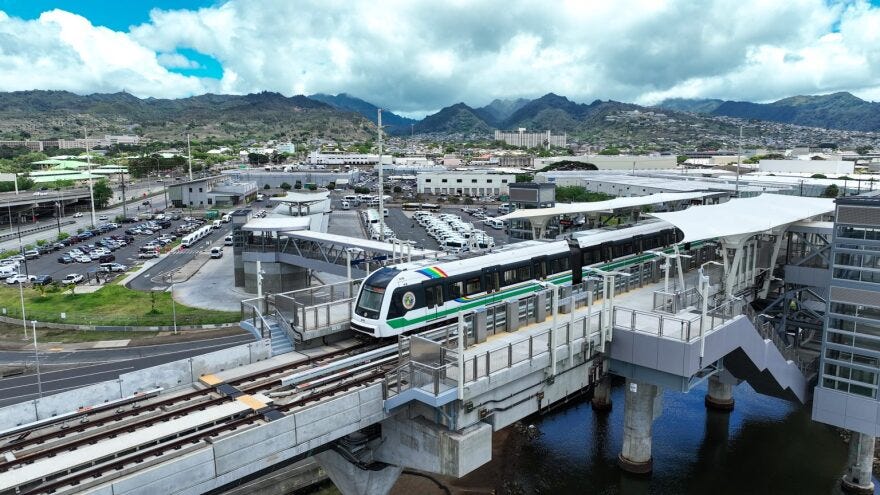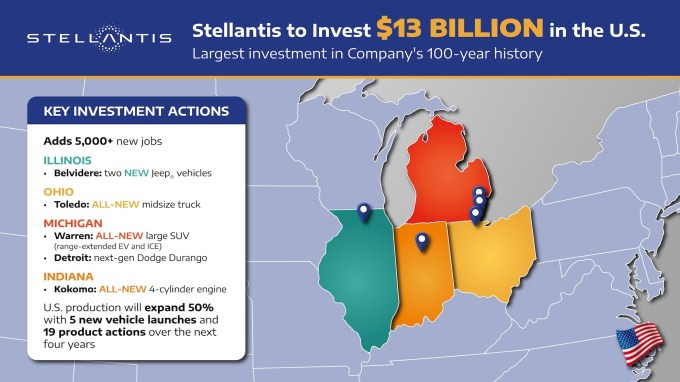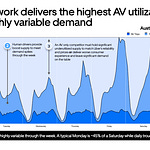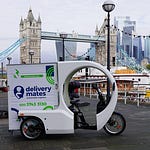Dense housing and public transit: two great tastes that taste better together. You’d think this classic combo would be a no-brainer, as building mid-rise housing helps with affordability and locating it near rail stations lets folks cut down on transportation costs, while putting more commuters near each metro stop leads to improved transit ridership. Talk about a virtuous cycle!
And yet in California, and the nation as a whole, this has been an oddly hard sell. Go to any major metropolitan area in the country and you’ll see rapid transit stations, some over a century old, surrounded by incredibly expensive single family homes. Finally, finally, this is set to change, with Governor Newsom just signing Senate Bill (SB) 79, the Abundant & Affordable Homes Near Transit Act. Championed by state Senator Scott Wiener (D-San Francisco,) this hard-fought win comes after nearly a decade of trying, with similar bills not quite making it all the way to the finish line.
On the eve of the bill’s passage, I caught up with Senator Wiener, to discuss the statecraft that went into creating this landmark legislation, what’s changed to finally get other state leaders ready to embrace more housing, how California can continue to lead the nation, the role he views for the state in an era of a hostile federal government (not to mention a few hostile tech leaders in his home district,) and much more.
This is a must-listen conversation, please do tune in to the full thing (which also includes a few news items of the week: new transit routes, air races and drone regulations, as well as the role of AI in transportation.
HOT INDUSTRY NEWS & GOSSIP
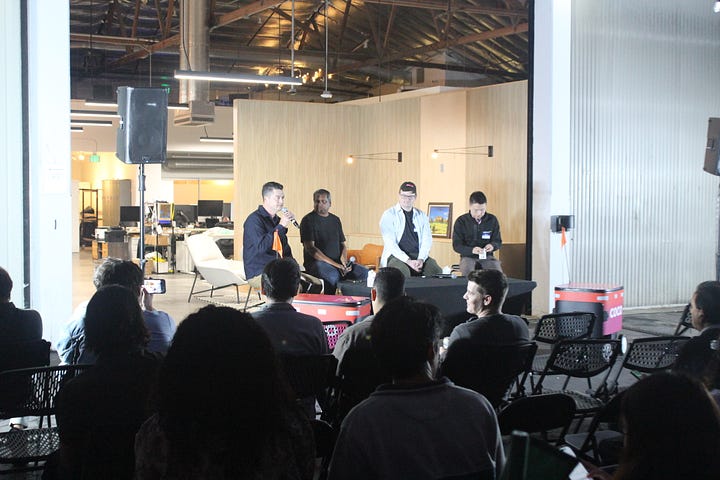
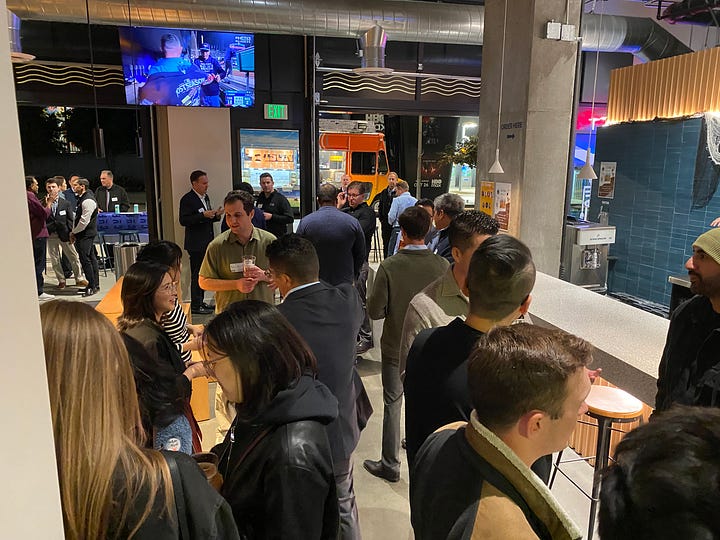
Thank you to everyone that came out to our amazing LA Tech Week events — what a fantastic crowd of thinkers and tinkerers building the future of mobility and delivery. And thanks of course to our friends at AVL and Coco Robotics for helping us pull off these iconic gatherings. Catch you at the next one!
Aloha to new rail: Honolulu just cut the ribbon on phase two of its Skyline automated rail line. While the metro hasn’t yet reached downtown, the 5.2 mile extension finally hits the airport and connects with numerous bus routes, which should mean the project finally starts to get some real ridership.
Running LA-te: Meanwhile in LA, Metro has delayed the opening of the D Line extension yet again, pushing phase 1 — originally scheduled to open in 2023 — back to early 2026. While some delays are understandable, it would be nice to see LACMTA and the construction consortium publicly communicate (and own) their shortcomings, as opposed to waiting for sleuths to FOIA board documents…
Self-driving Jags return home: AVs keep coming for big cities, with Waymo announcing its coming expansion to London, marking its first operations in Europe. While Waymo has talked about phasing out its Jaguar I-Paces with less-costly alternatives, it’s no surprise that the company is going with its British-ish hardware for this launch. The Alphabet-backed AVer also has an engineering hub in Oxford and will be competing with local champion Wayve.
Newber: Uber just rolled out a slew of new features, largely aimed at ameliorating gig worker concerns. The most interesting of the list is a U.S. pilot of “Digital Tasks” — which offers workers micro-tasks they can do when not driving (I have to assume your phone will not let you do this work if it detects the car’s in motion.) Other updates include rider heatmaps, women rider preference, new ride and tip guarantees and a revamped rewards program.
Everything is culture war… Chrysler, Jeep and Ram owner Stellantis is crowing about $13 billion in new investments in the U.S. (although it’s a bit hard to tell if some of that is double-counting previously announced spending.) While past headlines were all about spending big bucks on electrification, this new push is all about gas-guzzling SUVs. Perhaps that shouldn’t be so surprising given that Ram sells a $2,895 “Symbol of Protest” badge on its recently returned-to-sale Ram 1500 Hemi V8.
Elsewhere in automotive drama: The big three automakers are projecting $7 billion in tariff-related impairments to their 2025 earnings. Tesla is hurting too, as even with reduced prices its EVs can’t meet BYD’s competitive offerings (and in the U.S. their resorting to odd moves like covering up glass roofs with fabric liners.)
A welcome bit of bipartisan comity: Democrats and Republicans alike came together to pass the ROAD to Housing Act of 2025, sweeping it into the “must-pass” National Defense Authorization Act (of course.) Introduced by Sen. Elizabeth Warren of Massachusetts and Sen. Tim Scott of South Carolina, the bill aims to boost housing supply, promote housing affordability, and increase oversight + efficacy of federal regulators / housing programs.
Lamp-lighting the way: A new bill in NYC looks to turn the city’s street lamps into on-street EV chargers, in what would be a boon to both motorists and local startup Voltpost. Los Angeles has adapted 750+ lamps to support charging, but was aided by municipal ownership of the power utility: LADWP.
Look out below! India-based Airbound just raised $8.65M in seed funding to bring drone-powered delivery to the world’s most populous country. While the startup is initially targeting medical deliveries (a move pioneered by Zipline et al,) Airbound hopes to eventually achieve “one-cent delivery” by using a unique blended-wing design with fewer propellers.
A few good links: Minneapolis’ Metro Transit begins testing its 14.5-mile, $2.86B Green Line Extension, connecting downtown with the jobs-rich suburb of Eden Prairie. For you fellow dorks: a video of how to unload a mine cart train (quickly.) Similar to my article last week — Brad Templeton discusses the problematic economics of renting out an individually-owned robocab. Lime’s UK revenue jumped 75% to $686 million (£542 million.) GM’s rare-earth gamble pays off. Taxi Clubhouse looks to offer cabbies and ridehailing drivers a place to relax and heed nature’s call.
Until next week!
- Jonah Bliss & The Curbivore Crew



